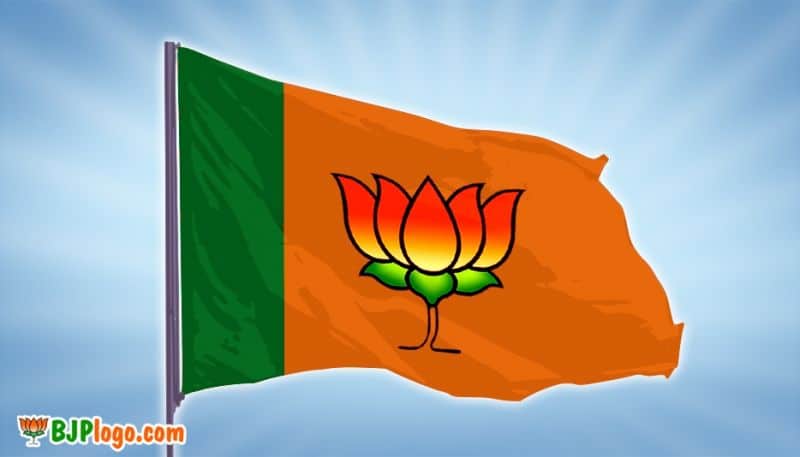New Delhi: Two contrasting assembly poll wins stood out in the BJP’s forward march that continued in 2017 – one was its astonishing scale of victory in Uttar Pradesh and another its surprisingly tough return to power in its bastion of Gujarat.
If the BJP’s huge win in the politically important Uttar Pradesh prompted many, including a key Opposition politician, to believe that its return to power in the Centre in 2019 was all but certain, the Gujarat result gave the Opposition hope as some fault lines emerged in an otherwise dominant saffron narrative.
As the year came to an end, what is, however, clear that it will go down as a high watermark for the party.
It was its most successful year after Narendra Modi led it to to power in the Centre in 2014 and its president Amit Shah went on to assert that its win in Uttar Pradesh, Uttarakhand, Goa and Manipur polls was even bigger than its victory in the last Lok Sabha polls.
Modi noted at a party meeting that the BJP with its allies were today ruling more states- 19 in total- than Indira Gandhi did at the height of her powers.
In Uttar Pradesh, the BJP reached close to the vote share of more than 40 per cent it had garnered in the last Lok Sabha polls, indicating that Modi’s charisma was more or less intact and its political project of Hindu consolidation while weakening caste alliances was working.
Its massive win in Uttar Pradesh and also in Uttarakhand, where the Congress tally fell to 11 from 32 while the BJP won 57 seats against 31 earlier, left the Opposition party dispirited and it was telling that it failed to form governments in Goa and Manipur, two states which threw a hung mandate with the Congress in lead.
Elections to five states, Punjab being the fifth one, spread across February and March, were held against the backdrop of the Modi government’s demonetisation decision in November 2016 and were seen as a first popular referendum on the exercise.
Hoping for a backlash, the Opposition went to town with stories of problems and hardships caused to the masses but was in for a shock when the results came.
The BJP’s scale of victory in Uttar Pradesh, where it won 325 seats in the 403-member assembly, was such that National Conference leader Omar Abdullah advised the Opposition to forget 2019 and prepare for 2024 Lok Sabha polls.
The SAD-BJP alliance was routed in Punjab by the Amarinder Singh-led Congress but it hardly mattered in the political discourse triggered by the saffron tsunami in Uttar Pradesh, which sends 80 members to the Lok Sabha that had 543 elected members.
If the BJP got better of its rivals in electoral field, it outwitted them off it as well.
Bihar Chief Minister Nitish Kumar, a staunch critic of Modi and seen as an Opposition leader around which ‘secular’ parties could rally, changed camps overnight, dumping the RJD and the Congress for the BJP over issues of corruption involving RJD chief Lalu Prasad and his family members.
As far as symbolism goes, Kumar’s embrace of Modi, with whom he once refused to share a stage, stood out for its projection of the BJP’s strength.
Its dominance was also underlined by its success in electing a first partyman as president with Ram Nath Kovind trouncing his rival Meira Kumar by getting over 65 per cent of votes.
That he is a Dalit only gave the BJP another talking point to woo downtrodden communities.
However, if the year started and continued like a dream for the BJP, it did not really end the way its leaders would have envisaged.
The Congress, which appeared to be one-legged in Gujarat after its senior leaders including Shankersinh Vaghela deserted it months before the assembly polls, ran a spirited campaign under Rahul Gandhi, giving BJP the jitters in the home state of Modi and Shah.
The BJP returned to power for a sixth consecutive term but with its lowest tally of all these six polls.
Against 99 seats of the BJP, the Congress won 77, its highest after 1985 polls.
Shah took heart from his party’s share of close to 50 per cent but there was little doubt that distress in a section of farmers and disaffection among numerically strong Patidars had set it back.
Many believed that it was largely Modi’s standing in his state and the formidable saffron organisation that spared the party blushes in its bastion state where the Congress machinery was seen comatose.
Opposition parties believe that they have at last got hold of issues around which they can build a campaign against the BJP.
With another round of elections only months away, the new year will tell if 2017 gave the opposition false hopes or it finally manages to shows signs of putting up a real fight in the 2019 Lok Sabha polls.
Among big states, the Congress-ruled Karnataka will go to the polls in the first half of this year followed by assembly elections in Madhya Pradesh, Rajasthan and Chhattisgarh- all ruled by the BJP- by the year end.
PTI

